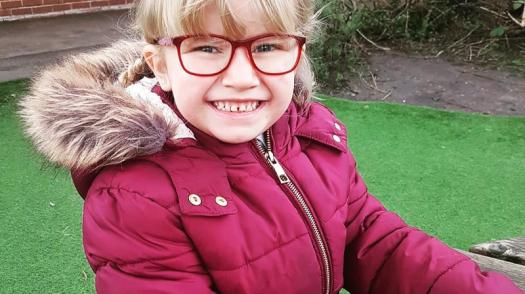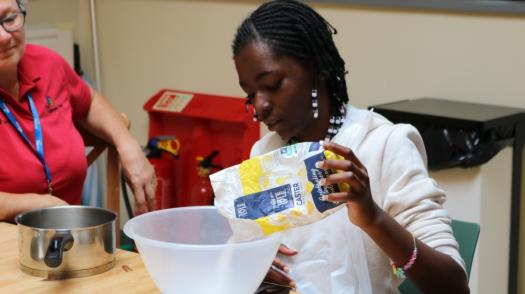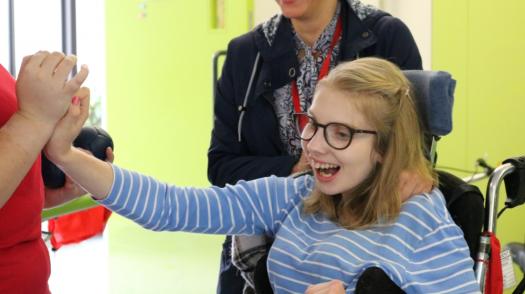Published on: 14/10/22
Allied Health Professions (AHPs) provide system-wide care to assess, treat, diagnose, and discharge patients across social care, housing, education, and independent and voluntary sectors.
AHP’s are health care professionals that deliver a range of therapies, and their focus is on prevention and improvement of health and wellbeing to maximise the potential for individuals to live full and active lives within their family circles, social networks, education, training, and the workplace.
They make up the third largest health care workforce nationally.
AHPs at The Children’s Trust
The Children’s Trust has 7 out of the 14 AHP roles: occupational therapists, physiotherapists, speech and language therapists, radiography, dieticians, music therapists and an orthotist.
They provide rich and diverse services to the children and young people receiving support in rehabilitation, at The Children’s Trust school, in school residential houses and in our rehabilitation community services. The teams bring a range of expertise in everything (the list is endless!) including;
- X-ray
- dietician/feeding management plans
- music therapy sessions
- supporting children’s postural care
- making orthotics
- assistive technology
- aquatic therapy
- rebound therapy
- use of robotic technology
- providing support with eating and drinking
The best part of my day is being able to make a small difference in the world, whether that is helping someone understand something better or finding a solution to an aspect of a child or young person’s day that would improve their quality of life. A day in the life of an Occupational Therapist can vary lots and that’s one of the things I like about being an OT!” – Tina Chen, Highly Specialist Occupational Therapist at The Children’s Trust
Across the UK
This year, a new AHP strategy has been published nationally, called AHPs Deliver.
The strategy reflects how AHPs work in multidisciplinary teams, and means that those who identify as part of the AHP community, working in a variety of health and care sectors, can use it to continually improve and redesign services.
Key takeaways of the new strategy include:
- championing AHPs and promoting diverse and inclusive leadership
- being in the right place at the right time with the right skills
- a commitment to research, innovation and evaluation
- harnessing digital technology and innovation through data
Other areas of interest include:
- a focus on environmental sustainability and an initiative called greener AHPs
- a national push on social justice around addressing health and care inequalities
- a commitment from NHS England to Chief Allied Health Professional roles in the new integrated care systems, which has changed from the previous CCGs. It demonstrates value in recognising the leadership that AHPs can bring at a national and commissioning level.
Being an AHP
The best thing about being an AHP is being part of a community of practice and working with other AHP professionals, sharing skills and learning to enhance participation in everyday life for the children and young people that we support.
If you know anyone thinking of entering the profession, rest assured it is a fantastic career choice and there are endless possibilities!
The best thing about the job is the people that we work with and getting to know families and children from all backgrounds. I enjoy helping them to improve their quality of life through therapy.
“For people wanting to join the profession I’d say try to get a variety of experience in different areas before specialising. This will mean you have a good understanding of all aspects of healthcare and clinical professionals.” - Krishna Patel, Physiotherapist at The Children’s Trust



